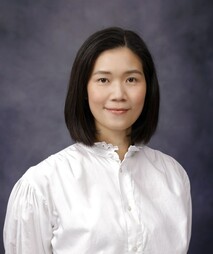Longevity
Brain health for the older adult
The Longevity Research Cluster (Longevity_RC), led by Prof Chetwyn Chan and Dr. Carman Leung, aims to foster and promote healthy and productive aging at the individual, family, and societal levels through interdisciplinary research programs in psychology, gerontology, neuroscience, sport science, public health, and engineering. Our research investigates how age-related degeneration can be slowed for a healthy late life, how individuals in middle age and early old age can better prepare for productive older adulthood, and how these individuals can continue to create social and economic value for society. The Cluster focuses on its Phase 1 research in 2024 to 2026 (see below).
Sustainable Development Goals
In 2015, UN member states agreed to 17 global Sustainable Development Goals (SDGs) to end poverty, protect the planet and ensure prosperity for all. The research team contributes towards the following SDG(s):
Coordinating PIs
| Name | |
|---|---|
| Prof Chetwyn CHAN | Vice President (Research and Development), Peter T. C. Lee Chair Professor of Psychology |
| Dr LEUNG Ka Man, Carman | Associate Professor, Department of Health and Physical Education |
Other PIs
| Name | |
|---|---|
| Prof JIANG Da | Professor, Department of Special Education and Counselling |
| Dr KAM Chi Shan, Anna | Associate Professor, Department of Special Education and Counselling |
| Prof John LEE Chi Kin | President; Chair Professor of Curriculum and Instruction |
| Dr MUNG Wai Yin, Steve | Assistant Professor, Research and Development Office (RDO) |
| Dr OR Pui Lai, Peggy | Assistant Professor, Department of Health and Physical Education |
| Dr WONG Man Lok | Assistant Professor, Department of Psychology |
| Dr YEUNG Kin Chung Michael | Assistant Professor, Department of Psychology |
In Phase 1, the Longevity_RC addresses theoretical gaps in the current brain and cognitive reserve models that describe age-related degeneration across the lifespan. We focus on three neural systems in the aging brain: the sensory system, particularly auditory function; the motor system, emphasizing physical activity and fitness; and the affective system, which includes executive control, personality, and motivation.
The development of an integrative brain and cognitive reserve model for aging will serve as the theoretical backbone for Phase 2, which focuses on enhancing the life and career development of adults aged 50 to 70 in the community.
Development of the integrative brain and cognitive reserve model involves older adult participants engaging in a physical activity protocol, quantifying the changes in their motor, cognitive and affective systems via both behavioural and brain imaging methods. The research team collaborates with the EdUHK Tai-Po Living Laboratory for Sustainability Project, and with non-government organizations and sport associations, to improve the brain health of older adults.







